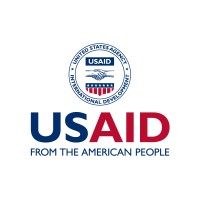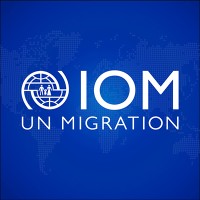
USAID Company Cyber Security Posture
usaid.govUSAID is the lead U.S. Government agency that works to end extreme global poverty and enable resilient, democratic societies to realize their potential. U.S. foreign assistance has always had the twofold purpose of furthering America's interests while improving lives in the developing world. USAID carries out U.S. foreign policy by promoting broad-scale human progress at the same time it expands stable, free societies, creates markets and trade partners for the United States, and fosters good will abroad. Spending less than 1 percent of the total federal budget, USAID works in over 100 countries to: -Promote broadly shared economic prosperity; -Strengthen democracy and good governance; -Protect human rights; -Improve global health, -Advance food security and agriculture; -Improve environmental sustainability; -Further education; -Help societies prevent and recover from conflicts; and -Provide humanitarian assistance in the wake of natural and man-made disasters. Privacy Policy: http://www.usaid.gov/privacy-policy
USAID Company Details
usaid
18501 employees
2408281.0
928
International Affairs
usaid.gov
Scan still pending
USA_1501716
In-progress
Between 800 and 900
This score is AI-generated and less favored by cyber insurers, who prefer the TPRM score.
 USAID Global Score
USAID Global Score.png)

USAID Company Scoring based on AI Models
| Model Name | Date | Description | Current Score Difference | Score |
|---|---|---|---|---|
| AVERAGE-Industry | 03-12-2025 | This score represents the average cybersecurity rating of companies already scanned within the same industry. It provides a benchmark to compare an individual company's security posture against its industry peers. | N/A | Between 800 and 900 |
USAID Company Cyber Security News & History
| Entity | Type | Severity | Impact | Seen | Url ID | Details | View |
|---|---|---|---|---|---|---|---|
| USAID | Breach | 100 | 6 | 2/2025 | USA000021225 | Link | |
Rankiteo Explanation : Attack threatening the economy of geographical regionDescription: The US Agency for International Development (USAID) is experiencing severe impacts from funding cuts and aid payment pauses. These measures have disrupted humanitarian relief and anti-human-trafficking efforts, leading to chaos among staff and organizations helping trafficking survivors. Services for victims are being limited, investigatory work into criminal groups is dwindling, and some organizations are ceasing operations. These issues embolden criminal groups and impact safe rescue operations, putting at risk thousands who are entrapped in scam compounds across Southeast Asia and face violence and coercion into digital fraud activities. | |||||||
| United States Agency for International Development (USAID) | Breach | 100 | 6 | 2/2025 | USA001021725 | Link | |
Rankiteo Explanation : Attack threatening the economy of geographical regionDescription: The reduction and pause in USAID funding have severely disrupted anti-human-trafficking operations in Southeast Asia. Essential services aiding trafficking victims have diminished, prophylactic efforts against scam compounds have lessened, and the criminal groups perpetrating digital fraud have potentially been further emboldened by the lack of opposition. NGOs and charities facing the withdrawal of funds are struggling to survive, directly affecting the well-being of already vulnerable individuals and potentially allowing for increased human rights violations in the form of forced labor and digital scam operations. | |||||||
| USAID | Cyber Attack | 100 | 6 | 2/2025 | USA000020725 | Link | |
Rankiteo Explanation : Attack threatening the economy of geographical regionDescription: Reduction in USAID and US State Department funding has severely disrupted anti-human-trafficking efforts in Southeast Asia, leading to diminished resources for victim assistance and organizational shutdowns. The halt of aid has caused chaos within groups helping trafficking survivors, hampering their ability to function, which may result in empowering the criminal organizations conducting online scams and human trafficking. These criminal activities, including pig butchering scams, have global repercussions, with estimated losses of over $75 billion. | |||||||
| United States Agency for International Development (USAID) | Cyber Attack | 100 | 6 | 2/2025 | USA001021425 | Link | |
Rankiteo Explanation : Attack threatening the economy of geographical regionDescription: USAID and associated relief efforts face severe disruptions due to funding cuts. These have jeopardized humanitarian aid, public health initiatives, and human rights work, including critical anti-human-trafficking operations. The decreased budget has rendered numerous organizations inoperative, causing chaos for survivor support staff daily. With significant negative implications, these funding pauses have emboldened criminal groups behind widespread online scams, risking lives and undermining law enforcement achievements against organized crime in Southeast Asia. | |||||||
USAID Company Subsidiaries

USAID is the lead U.S. Government agency that works to end extreme global poverty and enable resilient, democratic societies to realize their potential. U.S. foreign assistance has always had the twofold purpose of furthering America's interests while improving lives in the developing world. USAID carries out U.S. foreign policy by promoting broad-scale human progress at the same time it expands stable, free societies, creates markets and trade partners for the United States, and fosters good will abroad. Spending less than 1 percent of the total federal budget, USAID works in over 100 countries to: -Promote broadly shared economic prosperity; -Strengthen democracy and good governance; -Protect human rights; -Improve global health, -Advance food security and agriculture; -Improve environmental sustainability; -Further education; -Help societies prevent and recover from conflicts; and -Provide humanitarian assistance in the wake of natural and man-made disasters. Privacy Policy: http://www.usaid.gov/privacy-policy
Access Data Using Our API

Get company history
.png)
USAID Cyber Security News
Trump’s USAID Purge and Foreign Aid Turmoil Spark Global Security Concerns
The administration is dismantling USAID, halting aid programs, and erasing its presence. As U.S. influence and global aid hang in the ...
IBM Wins Contract to Strengthen USAID Cybersecurity Response in Europe and Eurasia
Five-year contract with $26 million in initial funding focuses on developing effective cybersecurity systems, procedures, and technology ...
IBM contract for overseas cyber assistance canned amid USAID shutdown
The IBM project supported USAID's Cybersecurity Protection and Response program and was fueled in part by accelerated cyberattacks targeting ...
USAID Cuts Demolish Cyber Assistance to U.S. Allies and Partners
Among the $60 billion of cuts in USAID grants and contracts are more than $175 million in critical cybersecurity programs for U.S. partners.
USAID’s information technology team is down to five members
Sources tell FedScoop there were previously around 100 IT staffers, while a team focused on transitioning resources to State was disbanded.
Ukraine Is an `Easy Target' for Russian Hackers After US Aid Pullback
US efforts to help Ukraine protect itself against Russian cyberattacks have been curtailed amid wide-ranging disruption by the Trump administration.
The Wiretap: USAID Was A Big Help In Ukraine’s Cyber War With Russia. Not Any More.
USAID-funded projects bolstered Ukraine's digital defenses in various ways. In particular, USAID projects helped to secure the country from cyberattacks.
USAID staff accuses DOGE of jeopardizing safety, accessing security clearance data
Elon Musk, who runs DOGE, has used his access to security clearance files to assess USAID workers' detailed financial records, the lawsuit ...
Steven Hernandez Named New CISO, Deputy CIO at USAID
Get to know Steven Hernandez, the new chief information security officer and deputy chief information officer at USAID.

USAID Similar Companies

#ExchangeAlumni - Alumni Affairs - State Dept.
Welcome, exchange program alumni! We are Alumni Affairs, an office in the Bureau of Educational and Cultural Affairs (ECA) at the U.S. Department of State. We welcome alumni of all U.S. government exchange programs, from Fulbright to Gilman, IVLP, YALI, YSEALI, YLAI, and many more! We offer grant c

World Health Organization
The World Health Organization's mission: to promote health, keep the world safe, and serve the vulnerable. Working through offices in more than 150 countries, WHO staff work side by side with governments and other partners to ensure the highest attainable level of health for all people. Stay connec

Republic of Turkey
Republic of Turkey Honorary Consulate General provides information about Turkey, travel, commercial opportunities as well as referrals to agencies/ organizations. The Honorary Consul General is available as a speaker on various topics concerning current events, the status of women , Turkish - US re

IOM - UN Migration
Established in 1951, the International Organization for Migration is the leading intergovernmental organization in the field of migration and is committed to the principle that humane and orderly migration benefits migrants and society. IOM works with its partners in the international community to

UNHCR, the UN Refugee Agency
UNHCR, the UN Refugee Agency, is a global organisation dedicated to saving lives, protecting rights and building a better future for people forced to flee their homes because of conflict and persecution. We lead international action to protect refugees, forcibly displaced communities and stateless

Government of Pakistan
Pakistan has come a long way and today is one of the fastest growing economies of Asia. With over 160 million inhabitants, Pakistan offers its investors a strong and large consumer market with an ever expanding middle class. Strategically placed at the crossroads of South Asia, Central Asia and West

Frequently Asked Questions (FAQ) on Cybersecurity Incidents
USAID CyberSecurity History Information
Total Incidents: According to Rankiteo, USAID has faced 4 incidents in the past.
Incident Types: The types of cybersecurity incidents that have occurred include ['Breach', 'Cyber Attack'].
Total Financial Loss: The total financial loss from these incidents is estimated to be {total_financial_loss}.
Cybersecurity Posture: The company's overall cybersecurity posture is described as USAID is the lead U.S. Government agency that works to end extreme global poverty and enable resilient, democratic societies to realize their potential. U.S. foreign assistance has always had the twofold purpose of furthering America's interests while improving lives in the developing world. USAID carries out U.S. foreign policy by promoting broad-scale human progress at the same time it expands stable, free societies, creates markets and trade partners for the United States, and fosters good will abroad. Spending less than 1 percent of the total federal budget, USAID works in over 100 countries to: -Promote broadly shared economic prosperity; -Strengthen democracy and good governance; -Protect human rights; -Improve global health, -Advance food security and agriculture; -Improve environmental sustainability; -Further education; -Help societies prevent and recover from conflicts; and -Provide humanitarian assistance in the wake of natural and man-made disasters. Privacy Policy: http://www.usaid.gov/privacy-policy.
Detection and Response: The company detects and responds to cybersecurity incidents through {description_of_detection_and_response_process}.
Incident Details
Incident 1: Ransomware Attack
Title: {Incident_Title}
Description: {Brief_description_of_the_incident}
Date Detected: {Detection_Date}
Date Publicly Disclosed: {Disclosure_Date}
Date Resolved: {Resolution_Date}
Type: {Type_of_Attack}
Attack Vector: {Attack_Vector}
Vulnerability Exploited: {Vulnerability}
Threat Actor: {Threat_Actor}
Motivation: {Motivation}
Incident 2: Data Breach
Title: {Incident_Title}
Description: {Brief_description_of_the_incident}
Date Detected: {Detection_Date}
Date Publicly Disclosed: {Disclosure_Date}
Date Resolved: {Resolution_Date}
Type: {Type_of_Attack}
Attack Vector: {Attack_Vector}
Vulnerability Exploited: {Vulnerability}
Threat Actor: {Threat_Actor}
Motivation: {Motivation}
Common Attack Types: The most common types of attacks the company has faced are ['Breach', 'Cyber Attack'].
Identification of Attack Vectors: The company identifies the attack vectors used in incidents through {description_of_identification_process}.
Impact of the Incidents
Incident 1: Ransomware Attack
Financial Loss: {Financial_Loss}
Data Compromised: {Data_Compromised}
Systems Affected: {Systems_Affected}
Downtime: {Downtime}
Operational Impact: {Operational_Impact}
Conversion Rate Impact: {Conversion_Rate_Impact}
Revenue Loss: {Revenue_Loss}
Customer Complaints: {Customer_Complaints}
Brand Reputation Impact: {Brand_Reputation_Impact}
Legal Liabilities: {Legal_Liabilities}
Identity Theft Risk: {Identity_Theft_Risk}
Payment Information Risk: {Payment_Information_Risk}
Incident 2: Data Breach
Financial Loss: {Financial_Loss}
Data Compromised: {Data_Compromised}
Systems Affected: {Systems_Affected}
Downtime: {Downtime}
Operational Impact: {Operational_Impact}
Conversion Rate Impact: {Conversion_Rate_Impact}
Revenue Loss: {Revenue_Loss}
Customer Complaints: {Customer_Complaints}
Brand Reputation Impact: {Brand_Reputation_Impact}
Legal Liabilities: {Legal_Liabilities}
Identity Theft Risk: {Identity_Theft_Risk}
Payment Information Risk: {Payment_Information_Risk}
Average Financial Loss: The average financial loss per incident is {average_financial_loss}.
Commonly Compromised Data Types: The types of data most commonly compromised in incidents are {list_of_commonly_compromised_data_types}.
Incident 1: Ransomware Attack
Entity Name: {Entity_Name}
Entity Type: {Entity_Type}
Industry: {Industry}
Location: {Location}
Size: {Size}
Customers Affected: {Customers_Affected}
Incident 2: Data Breach
Entity Name: {Entity_Name}
Entity Type: {Entity_Type}
Industry: {Industry}
Location: {Location}
Size: {Size}
Customers Affected: {Customers_Affected}
Response to the Incidents
Incident 1: Ransomware Attack
Incident Response Plan Activated: {Yes/No}
Third Party Assistance: {Yes/No}
Law Enforcement Notified: {Yes/No}
Containment Measures: {Containment_Measures}
Remediation Measures: {Remediation_Measures}
Recovery Measures: {Recovery_Measures}
Communication Strategy: {Communication_Strategy}
Adaptive Behavioral WAF: {Adaptive_Behavioral_WAF}
On-Demand Scrubbing Services: {On_Demand_Scrubbing_Services}
Network Segmentation: {Network_Segmentation}
Enhanced Monitoring: {Enhanced_Monitoring}
Incident 2: Data Breach
Incident Response Plan Activated: {Yes/No}
Third Party Assistance: {Yes/No}
Law Enforcement Notified: {Yes/No}
Containment Measures: {Containment_Measures}
Remediation Measures: {Remediation_Measures}
Recovery Measures: {Recovery_Measures}
Communication Strategy: {Communication_Strategy}
Adaptive Behavioral WAF: {Adaptive_Behavioral_WAF}
On-Demand Scrubbing Services: {On_Demand_Scrubbing_Services}
Network Segmentation: {Network_Segmentation}
Enhanced Monitoring: {Enhanced_Monitoring}
Incident Response Plan: The company's incident response plan is described as {description_of_incident_response_plan}.
Third-Party Assistance: The company involves third-party assistance in incident response through {description_of_third_party_involvement}.
Data Breach Information
Incident 2: Data Breach
Type of Data Compromised: {Type_of_Data}
Number of Records Exposed: {Number_of_Records}
Sensitivity of Data: {Sensitivity_of_Data}
Data Exfiltration: {Yes/No}
Data Encryption: {Yes/No}
File Types Exposed: {File_Types}
Personally Identifiable Information: {Yes/No}
Prevention of Data Exfiltration: The company takes the following measures to prevent data exfiltration: {description_of_prevention_measures}.
Handling of PII Incidents: The company handles incidents involving personally identifiable information (PII) through {description_of_handling_process}.
Ransomware Information
Incident 1: Ransomware Attack
Ransom Demanded: {Ransom_Amount}
Ransom Paid: {Ransom_Paid}
Ransomware Strain: {Ransomware_Strain}
Data Encryption: {Yes/No}
Data Exfiltration: {Yes/No}
Ransom Payment Policy: The company's policy on paying ransoms in ransomware incidents is described as {description_of_ransom_payment_policy}.
Data Recovery from Ransomware: The company recovers data encrypted by ransomware through {description_of_data_recovery_process}.
Regulatory Compliance
Incident 1: Ransomware Attack
Regulations Violated: {Regulations_Violated}
Fines Imposed: {Fines_Imposed}
Legal Actions: {Legal_Actions}
Regulatory Notifications: {Regulatory_Notifications}
Incident 2: Data Breach
Regulations Violated: {Regulations_Violated}
Fines Imposed: {Fines_Imposed}
Legal Actions: {Legal_Actions}
Regulatory Notifications: {Regulatory_Notifications}
Regulatory Frameworks: The company complies with the following regulatory frameworks regarding cybersecurity: {list_of_regulatory_frameworks}.
Ensuring Regulatory Compliance: The company ensures compliance with regulatory requirements through {description_of_compliance_measures}.
Lessons Learned and Recommendations
Incident 1: Ransomware Attack
Lessons Learned: {Lessons_Learned}
Incident 2: Data Breach
Lessons Learned: {Lessons_Learned}
Incident 1: Ransomware Attack
Recommendations: {Recommendations}
Incident 2: Data Breach
Recommendations: {Recommendations}
Key Lessons Learned: The key lessons learned from past incidents are {list_of_key_lessons_learned}.
Implemented Recommendations: The company has implemented the following recommendations to improve cybersecurity: {list_of_implemented_recommendations}.
References
Additional Resources: Stakeholders can find additional resources on cybersecurity best practices at {list_of_additional_resources}.
Investigation Status
Incident 1: Ransomware Attack
Investigation Status: {Investigation_Status}
Incident 2: Data Breach
Investigation Status: {Investigation_Status}
Communication of Investigation Status: The company communicates the status of incident investigations to stakeholders through {description_of_communication_process}.
Stakeholder and Customer Advisories
Incident 1: Ransomware Attack
Stakeholder Advisories: {Stakeholder_Advisories}
Customer Advisories: {Customer_Advisories}
Incident 2: Data Breach
Stakeholder Advisories: {Stakeholder_Advisories}
Customer Advisories: {Customer_Advisories}
Advisories Provided: The company provides the following advisories to stakeholders and customers following an incident: {description_of_advisories_provided}.
Initial Access Broker
Incident 1: Ransomware Attack
Entry Point: {Entry_Point}
Reconnaissance Period: {Reconnaissance_Period}
Backdoors Established: {Backdoors_Established}
High Value Targets: {High_Value_Targets}
Data Sold on Dark Web: {Yes/No}
Incident 2: Data Breach
Entry Point: {Entry_Point}
Reconnaissance Period: {Reconnaissance_Period}
Backdoors Established: {Backdoors_Established}
High Value Targets: {High_Value_Targets}
Data Sold on Dark Web: {Yes/No}
Monitoring and Mitigation of Initial Access Brokers: The company monitors and mitigates the activities of initial access brokers through {description_of_monitoring_and_mitigation_measures}.
Post-Incident Analysis
Incident 1: Ransomware Attack
Root Causes: {Root_Causes}
Corrective Actions: {Corrective_Actions}
Incident 2: Data Breach
Root Causes: {Root_Causes}
Corrective Actions: {Corrective_Actions}
Post-Incident Analysis Process: The company's process for conducting post-incident analysis is described as {description_of_post_incident_analysis_process}.
Corrective Actions Taken: The company has taken the following corrective actions based on post-incident analysis: {list_of_corrective_actions_taken}.
Additional Questions
General Information
Ransom Payment History: The company has {paid/not_paid} ransoms in the past.
Last Ransom Demanded: The amount of the last ransom demanded was {last_ransom_amount}.
Last Attacking Group: The attacking group in the last incident was {last_attacking_group}.
Incident Details
Most Recent Incident Detected: The most recent incident detected was on {most_recent_incident_detected_date}.
Most Recent Incident Publicly Disclosed: The most recent incident publicly disclosed was on {most_recent_incident_publicly_disclosed_date}.
Most Recent Incident Resolved: The most recent incident resolved was on {most_recent_incident_resolved_date}.
Impact of the Incidents
Highest Financial Loss: The highest financial loss from an incident was {highest_financial_loss}.
Most Significant Data Compromised: The most significant data compromised in an incident was {most_significant_data_compromised}.
Most Significant System Affected: The most significant system affected in an incident was {most_significant_system_affected}.
Response to the Incidents
Third-Party Assistance in Most Recent Incident: The third-party assistance involved in the most recent incident was {third_party_assistance_in_most_recent_incident}.
Containment Measures in Most Recent Incident: The containment measures taken in the most recent incident were {containment_measures_in_most_recent_incident}.
Data Breach Information
Most Sensitive Data Compromised: The most sensitive data compromised in a breach was {most_sensitive_data_compromised}.
Number of Records Exposed: The number of records exposed in the most significant breach was {number_of_records_exposed}.
Ransomware Information
Highest Ransom Demanded: The highest ransom demanded in a ransomware incident was {highest_ransom_demanded}.
Highest Ransom Paid: The highest ransom paid in a ransomware incident was {highest_ransom_paid}.
Regulatory Compliance
Highest Fine Imposed: The highest fine imposed for a regulatory violation was {highest_fine_imposed}.
Most Significant Legal Action: The most significant legal action taken for a regulatory violation was {most_significant_legal_action}.
Lessons Learned and Recommendations
Most Significant Lesson Learned: The most significant lesson learned from past incidents was {most_significant_lesson_learned}.
Most Significant Recommendation Implemented: The most significant recommendation implemented to improve cybersecurity was {most_significant_recommendation_implemented}.
References
Most Recent Source: The most recent source of information about an incident is {most_recent_source}.
Most Recent URL for Additional Resources: The most recent URL for additional resources on cybersecurity best practices is {most_recent_url}.
Investigation Status
Current Status of Most Recent Investigation: The current status of the most recent investigation is {current_status_of_most_recent_investigation}.
Stakeholder and Customer Advisories
Most Recent Stakeholder Advisory: The most recent stakeholder advisory issued was {most_recent_stakeholder_advisory}.
Most Recent Customer Advisory: The most recent customer advisory issued was {most_recent_customer_advisory}.
Initial Access Broker
Most Recent Entry Point: The most recent entry point used by an initial access broker was {most_recent_entry_point}.
Most Recent Reconnaissance Period: The most recent reconnaissance period for an incident was {most_recent_reconnaissance_period}.
Post-Incident Analysis
Most Significant Root Cause: The most significant root cause identified in post-incident analysis was {most_significant_root_cause}.
Most Significant Corrective Action: The most significant corrective action taken based on post-incident analysis was {most_significant_corrective_action}.
What Do We Measure?
















Every week, Rankiteo analyzes billions of signals to give organizations a sharper, faster view of emerging risks. With deeper, more actionable intelligence at their fingertips, security teams can outpace threat actors, respond instantly to Zero-Day attacks, and dramatically shrink their risk exposure window.
These are some of the factors we use to calculate the overall score:
Identify exposed access points, detect misconfigured SSL certificates, and uncover vulnerabilities across the network infrastructure.
Gain visibility into the software components used within an organization to detect vulnerabilities, manage risk, and ensure supply chain security.
Monitor and manage all IT assets and their configurations to ensure accurate, real-time visibility across the company's technology environment.
Leverage real-time insights on active threats, malware campaigns, and emerging vulnerabilities to proactively defend against evolving cyberattacks.




